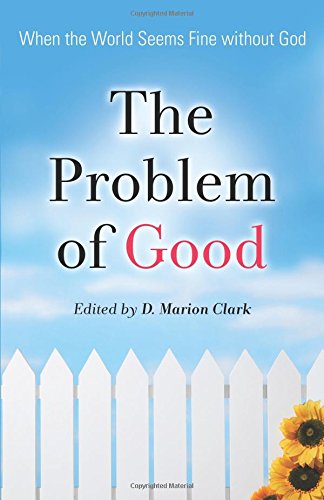A Book Summary from Books At a Glance
About the Editor
D. Marion Clark (M.Div. Gordon-Conwell Theological Seminary) served as executive minister of Tenth Presbyterian Church in Philadelphia for sixteen years and has edited two previous books.
Overview
The contributors of this volume address the difficulty of accounting for the good and the beautiful produced by unregenerate people through a biblical and practical exposition of the doctrine of Common Grace.
Table of Contents
Forward
Acknowledgments
Introduction: The Problem of the Good
Part One: An Exposition of the Doctrine of Common Grace
1. Restraining Sin and Wrath (Steven J. Lawson)
2. My Father’s World: The Good Gifts of Common Grace (Sean Michael Lucas)
Part Two: Application of Common Grace for Worship and Life
3. Worshiping and Glorifying the Creator and Provider (D. Marion Clark)
4. Sharing the Gospel in Light of Common Grace (John Leonard)
5. Common Grace and Loving Your Neighbor (Ruth Naomi Floyd)
6. How Should we then Live in this World? (David Skeel)
7. How May We Learn from the World? (Gene Edward Veith)
8. Hardwired for Pleasure (Paul David Tripp)
9. The “Good” Neighbor (D. Marion Clark)
Conclusion: The Limits of Common Grace
Summary
Chapter One:
Restraining Sin and Wrath (Steven J. Lawson)
Lawson sets out to explain the biblical doctrine of Common Grace along two lines: first, how God holds back the unregenerate from sinning more than they do; and second, how God restrains his own wrath toward the sinful world.
Under the first heading, Lawson outlines the following ten methods whereby God holds back the full potential of human sinfulness.
1) Sin is restrained by God’s Spirit by limiting man’s lifespan (Gen. 6:1-3)
2) Sin is restrained by the threat of capital punishment for sin (Gen. 9:6)
3) God’s providential orchestration of events prevents man from sinning (Gen. 20:6)
4) Sin is restrained by God’s control over Satan’s power (Job 1:8-12)
5) Sin is restrained by the example of Christian good works (Matt. 5:13)
6) Sin is restrained by the natural love of family life (Matt. 7:9-11)
7) Sin is restrained by man’s innate awareness of God’s authority (Rom. 1:20-21)
8) Sin is restrained by inner conscience (Rom. 2:14-15)
9) Sin is restrained by human government (Rom. 13:1-5)
10) Sin is restrained through exposure to gospel preaching (Heb. 6:4-6)
Under the second heading, Lawson outlines six instances of God’s restraint of his own just wrath against human sin.
1) God commutes the full sentence of death against Adam and Eve in the Garden which is the paradigm for God’s mercy on all Adam’s descendants (Gen. 2:17; 3:6-7)
2) God’s delay of judgment while Noah built the ark (1Pet. 3:20)
3) The mission of Christ’s first coming was to bring salvation and mercy, not judgment as well might have been expected (Lk.13:1-5)
4) God restrained his wrath toward the Gentiles in anticipation of Christ’s mission (Acts 14:16; 17:30)
5) God restrains his wrath toward the Jews both before and after Christ’s coming (Rom. 2:4-5)
6) God restrains his wrath toward all unbelievers generally giving the world ample opportunity to hear and respond to the gospel (2Pet. 3:9).
Chapter Two:
My Father’s World: The Good Gifts of Common Grace (Sean Michael Lucas)
Whereas Lawson focused on the negative aspect of Common Grace in restraining evil, Lucas focuses on the positive way God bestows good on his world through Common Grace. Lucas begins with a look at how God created the world to reflect his glory and goodness, and to create space for life to flourish and thrive. God established norms, patterns, or “natural laws” through his covenant faithfulness that would provide boundaries and limits in which the world through human agency could develop and advance. Despite the reality of the Fall, creation’s original glory and goodness has not been annihilated only frustrated and “subject to futility” in the hopes of ultimate redemption.
[To continue reading this summary, please see below....]
The remainder of this article is premium content. Become a member to continue reading.
Already have an account? Sign In
